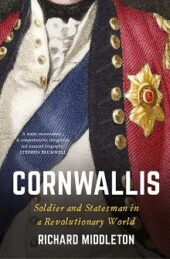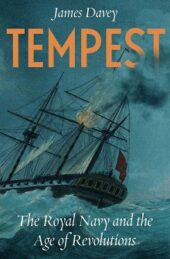David O. Stewart revisits Washington’s political career with two objectives. Half his book examines his subject’s personal and political development before 1775 to show how Washington developed impressive political skills and a clear political agenda. Although most of the ground covered is familiar, this account is a fine guide to how Virginia’s aspiring elite operated.
Stewart stresses that Washington’s early political career in the Virginia colonial legislature was as important as his far shorter one as a militia officer in equipping him for national leadership in the crises of the mid-1770s. He enjoyed extensive political networks. During legislative sessions in Virginia, he dined out, gambled and went to the theatre. At home at Mount Vernon in 1771, he and his wife were without guests on only ten nights. Sociability and stamina remained fixtures.
The second half of the book re-assesses selected phases of his career as a national figure. Stewart’s focus on central issues and the clarity of his exposition build a strong case for Washington as a more forceful, if cautious, president than is typically accepted.
Washington’s extensive political experience before 1775 taught him that, as military commander, he had to work closely with the Confederation Congress. His command of militia in the 1750s taught him that severely limited manpower, munitions and money required patient, persistent negotiation with the civil authorities. According to Stewart, ‘his sure judgment of events, canny evaluations of people, great energy and determination, and steady focus on critical strategic goals’ inspired trust among politicians, who on four occasions between 1775 and 1798 unanimously selected him for national leadership as a general and as a politician.
His cautious, conciliatory approach to legislative politics did not mean that Washington lacked clear objectives. As a younger son and being unacademic, the teenage Washington became a land surveyor. He ventured west on government surveying and served in the Virginia militia on the far western frontier. As a Virginia legislator, he strove to secure generous grants of western land for militia service, to expand Virginia beyond the Appalachians, and to improve navigation on the Potomac River as a route into the frontier region where he eventually amassed 60,000 acres. This somewhat starchy, watchful, assiduously well-mannered gentleman-planter viscerally shared in one entrepreneurial version of the American Dream.
As president, his achievements were significant. He ensured that Congress selected a site for the new national capital on the Potomac, near his estate at Mount Vernon, and that the plan promptly became a reality, despite many congressmen’s hopes that the seat of government would remain in its temporary abode, Philadelphia. His caution and reticence ensured the chartering of a national bank and the settlement of commercial and border disputes with Britain, against the wishes of former Virginia allies, Jefferson and Madison. For Stewart, Washington proved to be ‘a master politician’ who ‘bequeathed the nation a stable foundation that held for generations’. He makes a highly readable and well-constructed case to support that conclusion that is enlightening and most important, enjoyable.
Bruce Collins is a historian and academic and author of War and Empire: The Expansion of Britain, 1790-1830.







